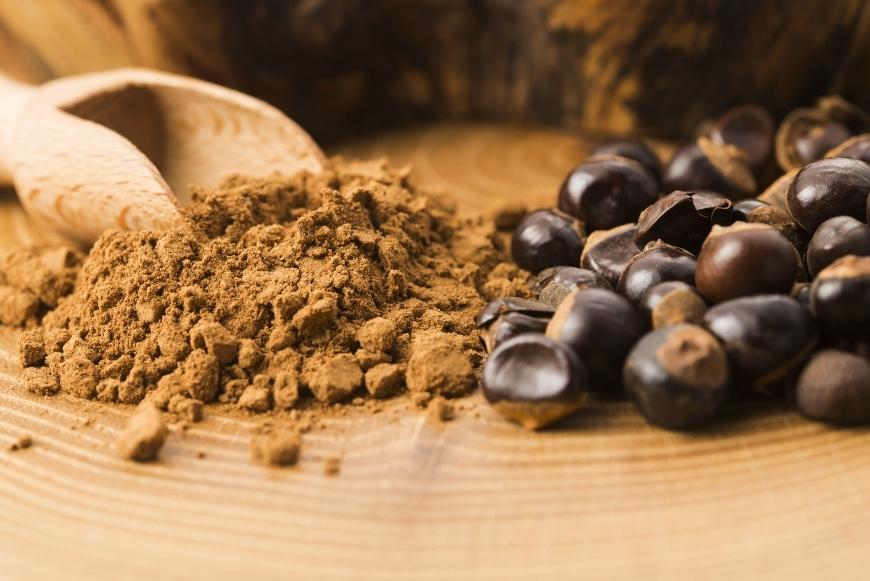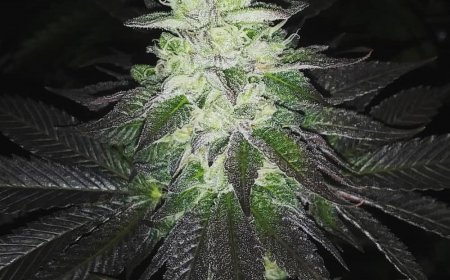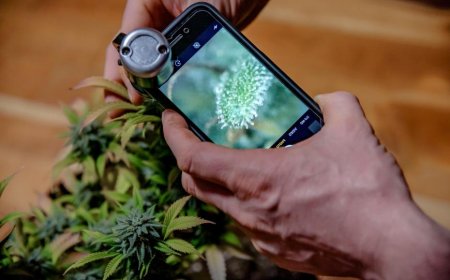The Best Alternatives to Coffee
Explore the best alternatives to coffee, from matcha tea to golden milk. Learn about their health benefits and how they can enhance your morning routine.

Exploring the best alternatives to coffee can be a thrilling journey into the world of stimulating beverages. With numerous options available, there's no need to stick with traditional coffee if it doesn't suit your palate or lifestyle. This blog post will guide you through this fascinating exploration.
We'll delve into the benefits and types of coffee substitutes, examining everything from chicory coffee to green tea and beyond. Discover the advantages, possible drawbacks and amount of caffeine in comparison to regular coffee that these substitutes offer.
Furthermore, we’ll share some exciting recipes for creating these alternatives at home using ingredients like matcha powder and coconut milk. Lastly, we’ll provide information on where you can buy these intriguing alternatives to your morning routine cup of joe. So sit back with your favorite brew (or soon-to-be-favorite alternative) as we embark on this invigorating adventure together.
Table of Contents:
- Alternatives to Coffee for a Healthier Boost
- Alternatives to Coffee That Will Give You a Boost
- Healthier Ways to Start Your Day
- Side Effects of Coffee Alternatives
- Choosing an Alternative to Coffee
- Recipes for Coffee Alternatives
- Where to Find Alternatives to Coffee
- FAQs in Relation to The Best Alternatives to Coffee
- Conclusion
Alternatives to Coffee for a Healthier Boost
If you're tired of the jitters and crashes that come with coffee, there are plenty of alternatives that can give you an energy boost without the negative side effects.

Green Tea
Green tea is packed with antioxidants that fight oxidative stress. It has less caffeine than coffee, making it a great option if you want to cut back on your caffeine intake.
Maca Root Powder
Maca root powder, also known as Peruvian ginseng, has been used for centuries to increase stamina and reduce fatigue. It's loaded with essential nutrients like vitamin C, copper, and iron.
Herbal Drinks
Chicory and dandelion root teas are naturally caffeine-free and have a similar taste to coffee. They support liver function and promote digestion.
Decaf Coffee
Decaf coffee is a great option for those who enjoy the ritual of brewing coffee but want something less stimulating. Modern decaffeination processes ensure minimal flavor loss while removing up to 97% of the caffeine content.
Matcha Tea
Matcha tea offers sustained energy release thanks to its unique combination of L-theanine and moderate levels of caffeine. It's a great alternative for those who want a boost without the jitters.
Experiment to discover which option best suits your needs and preferences for a healthier, happier morning routine. So, go ahead and try something new for a healthier and happier morning routine.
Alternatives to Coffee That Will Give You a Boost
If you're looking for an alternative to coffee that can give you a boost, Matcha green tea is a great option. One popular option is Matcha green tea, which has less caffeine than coffee but can still provide an energy boost. Plus, it's packed with antioxidants and can help improve focus and concentration.
Guarana
Another great alternative is Guarana, a plant native to the Amazon basin that's often used in energy drinks. Unlike coffee, Guarana releases its caffeine slowly over several hours, providing sustained energy without the crash.
Herbal Options
If you prefer something herbal, consider trying Yerba Mate or Ginseng. Yerba Mate is a traditional South American drink made from the leaves of the Ilex paraguariensis tree. It has less caffeine than coffee but more than most teas. Ginseng is an herb commonly used in traditional Chinese medicine known for boosting energy levels and improving cognitive performance.
Natural Supplements
For non-stimulant options that can increase your vitality and reduce fatigue, try natural supplements like Maca root or Rhodiola Rosea.
Caffeinated Beverages
In addition to these natural alternatives, there are also numerous caffeinated beverages on the market designed as direct substitutes for coffee. Chicory "coffee", Teeccino Herbal Coffee Substitute, and Four Sigmatic Mushroom Coffee Mixes are just a few examples, each offering unique flavor profiles along with various health benefits.
Healthier Ways to Start Your Day
Not only do they provide similar stimulating effects, but they also offer various health benefits.
Tea
Tea is a great option instead of coffee, as it has less caffeine and contains plenty of antioxidants. Green tea, in particular, contains L-theanine, an amino acid that promotes relaxation and helps counteract stress.
Yerba Mate
Yerba Mate is a traditional South American drink that provides a smooth increase in energy thanks to its unique blend of stimulants like xanthines. It's known for its ability to relax smooth muscle tissue while also stimulating heart muscles.
Cacao Drinks
Cacao drinks are another excellent choice as they contain theobromine - a natural stimulant that's gentler on the digestive system than caffeine but still boosts alertness and mood. Plus, cacao is rich in flavonoids - compounds linked with cardiovascular health benefits.
Herbal Tonics
Herbal tonics such as ginseng and rhodiola rosea are also great alternatives to coffee. Ginseng has been employed in traditional Chinese medicine for ages due to its energizing effects, while Rhodiola Rosea is noted for improving mental acuity during stressful times.
In conclusion, these alternatives offer various health benefits from boosting cognitive function and mood enhancement to promoting better digestion and cardiovascular health. So why not give them a try?
Side Effects of Coffee Alternatives
Considering the potential consequences, it's wise to be aware of side effects associated with coffee alternatives. Like any substance that alters your body's natural state, these alternatives may have some unexpected impacts.
Green Tea
Green tea contains caffeine and tannins which could lead to stomach problems or cause headaches in some people. Nevertheless, it also boasts anti-inflammatory properties and can potentially enhance cognitive performance.
Yerba Mate
Yerba mate has been linked with an increased risk of certain types of cancer when consumed in large amounts over time. It also contains caffeine and other compounds that can improve mental clarity and boost energy levels.
Herbal Teas
Herbal teas like chamomile are generally safe but can cause allergic reactions in individuals sensitive to plants from the daisy family. Similarly, chicory root coffee substitutes might trigger allergies and should be avoided by pregnant women due to its potential impact on menstrual cycles.
Energy Drinks
Consuming energy drinks in excess or by those with heightened sensitivity can lead to weight gain, health issues, heart palpitations, and anxiety due to their high sugar content and artificial ingredients. Additionally, many of these drinks have significant levels of caffeine which can cause heart rate irregularities or anxiety when taken in excess.
In general, most side effects associated with these alternatives tend to occur when they're consumed excessively or by individuals who are particularly sensitive. It's always recommended to do thorough research before trying out new substances as well as consult healthcare professionals if necessary.
Choosing an Alternative to Coffee
Consider why you may be wanting to replace coffee and decide on an alternative that works with your health objectives and lifestyle. Here are some tips on how to select the best substitute for your daily cup of joe.
Identify Your Reasons
Firstly, figure out why you want an alternative. Are you trying to reduce caffeine intake or seeking a healthier option? Once you've identified your reasons, it'll be easier to narrow down your choices.
Consider Teas
Teas, such as green or black tea, can be excellent alternatives if you're looking to reduce caffeine intake. They contain less caffeine than coffee but still provide enough stimulant effect without causing jitters or sleep disturbances often associated with high-caffeine drinks.
Try Herbal Teas
If health is your concern, consider herbal teas like chamomile or peppermint, which have numerous health benefits. You could also try superfood beverages like matcha tea or turmeric latte known for their antioxidant properties.
Consider Taste Preference
If you love the robust flavor of coffee, opt for substitutes like chicory root that mimic its bitter notes while being naturally decaffeinated.
Think About Convenience
Many people love coffee because it's quick and easy - so ensure whatever alternative you choose fits seamlessly into your routine, whether that means brewing loose leaf tea at home or grabbing a ready-to-drink bottle from the store.
Recipes for Coffee Alternatives
For a more healthful and sustainable energy boost than coffee, why not try making one of these tasty alternatives at home? Here are some delicious and nutritious recipes.
Matcha Latte
Matcha is a type of powdered green tea that's rich in antioxidants and provides a calm alertness without the jitters. To make it at home, whisk one teaspoon of matcha powder with two tablespoons of hot water until frothy. Then add warm almond milk and sweeten with honey if desired.
Turmeric Golden Milk
This Ayurvedic drink has anti-inflammatory properties thanks to its main ingredient - turmeric. Mix one teaspoon of turmeric powder into warmed coconut milk along with ginger, cinnamon, black pepper (to aid absorption), and honey or maple syrup for sweetness.
Maca Smoothie
Maca root is known for boosting energy levels naturally without caffeine's side effects like anxiety or insomnia. Blend maca powder into smoothies along with fruits like bananas or berries for added flavor and nutrients. Here's an excellent maca smoothie recipe to try.
Incorporating these beverages into your routine could provide the pick-me-up you need while offering various health benefits beyond what traditional coffee can offer. Try them out and observe the effects.

Where to Find Alternatives to Coffee
For those seeking an alternative to coffee for energy, numerous options exist which can provide a jitter-free boost. Here are some places to find them:
Online Retailers
Online retailers like Amazon offer a wide variety of coffee substitutes from different brands. You can find everything from chicory root coffee to matcha green tea powder here. For more specialized products like yerba mate or guayusa leaves, check out websites like Yerba Mate and Runaguayusa.
Natural Food Stores
Natural food stores like Whole Foods Market have sections dedicated to herbal teas and other caffeine-free beverages. They carry many alternatives to coffee, including herbal teas, energy drinks, and natural supplements like ginseng and guarana.
Bulk Bins
If you're interested in experimenting with different flavors at home, consider purchasing loose leaf teas or herbs from bulk bins at health food stores or co-ops. This allows for greater customization based on personal preference while also being cost-effective.
Remember, the best alternative to coffee will depend on your individual needs and preferences. Don't be scared to experiment and explore until you locate what's most suitable for your situation.
FAQs in Relation to The Best Alternatives to Coffee
Looking for a healthy alternative to coffee for energy?
Green tea is a great option as it contains caffeine and antioxidants.
Want to replace coffee with herbs?
Chicory root, dandelion root, and yerba mate are all excellent coffee substitutes.
Struggling with anxiety and looking for a coffee substitute?
Chamomile tea is a natural way to reduce anxiety without the jitters from caffeine.
Need a pick-me-up without coffee?
Try drinking a glass of water with lemon or eating an apple to naturally wake up your body.
Conclusion
The Best Alternatives to Coffee: Looking for a new way to start your day? Check out The Best Alternatives to Coffee for a variety of options that will give you the energy boost you need. From herbal teas to chicory root, there are plenty of coffee substitutes that offer unique flavors and health benefits.
Not sure which one to try? Learn about the different types of coffee alternatives and how to choose the right one for you. And if you're feeling adventurous, try out some of the delicious recipes included in the article. Ready to make the switch? Find out where to buy these alternatives and start your morning off on the right foot.




















































































































